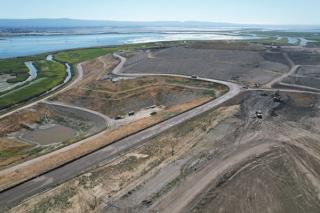
What Colorado's new landfill methane rule means for solid waste operators
by Patrick Dilsaver, Selina Roman-White, Celine El-Khouri, Kieran Carroll
View post

For those of you who have had to submit your compliance to the latest ESOS phase (The UK Government’s Energy Saving Opportunity Scheme), now is the time to keep the momentum going and put the key findings into an action plan.
The ESOS compliance deadline was extended to 6 August 2024, but the latest Phase of this exercise requires that all companies who have to comply, must submit an Action Plan. Compliance can often seem like a tick box exercise but the benefit of ESOS is that it identifies both cost and energy saving opportunities. This should be seen as a great opportunity to take the findings and put into place a feasible action plan with milestones to ensure that these energy and cost savings have the best potential for being achieved.
The latest Phase of ESOS has really grown in compliance requirements with the action plan and annual progress reports, but these should really benefit companies by ensuring that the findings are useful and plans are put in place and monitored.
Due to the delayed functionality in submitting action plans through the Manage your Energy Savings Opportunity Scheme (MESOS) portal, The Environment Agency will now accept action plans that are submitted by 5 March 2025. Despite this extension, we would strongly recommend you keep carrying out all the preparatory work in order to submit them as soon as the portal is ready (1 November).
Any organisation who was required to comply with ESOS Phase 3 is also required to submit an action plan and subsequent annual progress reports. This also includes organisations who have had changes to their size or turnover meaning they fall under the qualification criteria during the action plan period.
If you chose not to submit an action plan or any progress reports, the Environment Agency will publish that you do not intend to carry out any energy saving actions. All action plans and progress reports are made available to the public.
As a reminder, the qualification criteria included the following:
Creating an action plan is an excellent method for aligning an organisation’s energy performance improvement goals with its strategic direction. Enhanced energy performance and the associated cost savings help organisations stay competitive. Additionally, an action plan can assist organisations in achieving broader climate change objectives they have pledged to meet.
When action plans and progress reports are made public, it provides an opportunity for organisations to uphold or enhance their reputation. This transparency showcases their corporate commitment to contributing to the UK Government’s net zero targets.
The initial signed-off action plan and annual progress reports must be submitted via the MESOS portal by the dates mentioned previously.
A company board director or equivalent needs to sign the action plan and the progress update reports.
An action plan is a document that requires an ESOS participant to consider what actions they may wish to commit to carrying out before the next ESOS assessment. It is also an opportunity for participants to set any energy reduction targets they wish to achieve by the next ESOS assessment, however, this is optional.
Some additional, optional information that an organisation may wish to include can be actions or targets they have committed to for the purpose of any mandatory or voluntary schemes outside of ESOS. This can be actions or targets on energy savings and/or greenhouse gas emissions. Although including this information is optional, if an organisation chooses to include it within the action plan, they should be prepared to provide a progress update on them.
Alternatively, an organisation may choose to submit an action plan that states that they will not take any actions to save energy during the action plan period.
An annual progress update is a report on the actions an organisation has committed to in their action plan for each relevant 12-month period. The relevant period of 12 months for the first annual progress report will cover from 6 December 2024 to 5 December 2025, and from 6 December 2025 to 5 December 2026 for the second annual progress report.
An organisation may also wish to include any other actions outside the original action plan that have been completed to reduce energy consumption during either of the two 12-month reporting periods. However, this is completely optional.
If there are any changes to an organisation’s UK corporate group, it must be clearly stated in the action report or a progress report.
Although the Environment Agency do not require an ESOS Lead Assessor to sign off your plans, SLR has a team of experts who can tailor your action plans and progress reports to ensure that they are relevant and can help you realise opportunities for energy and cost savings across your business. Our team can support in drafting the plans or reviewing what you already have.
For further information, or if you are unsure what to put into the action plan, please contact us and we can provide support and advice tailored to your needs.

by Patrick Dilsaver, Selina Roman-White, Celine El-Khouri, Kieran Carroll

by Emily Willoughby, James Balik-Meacher

by Ben Adler